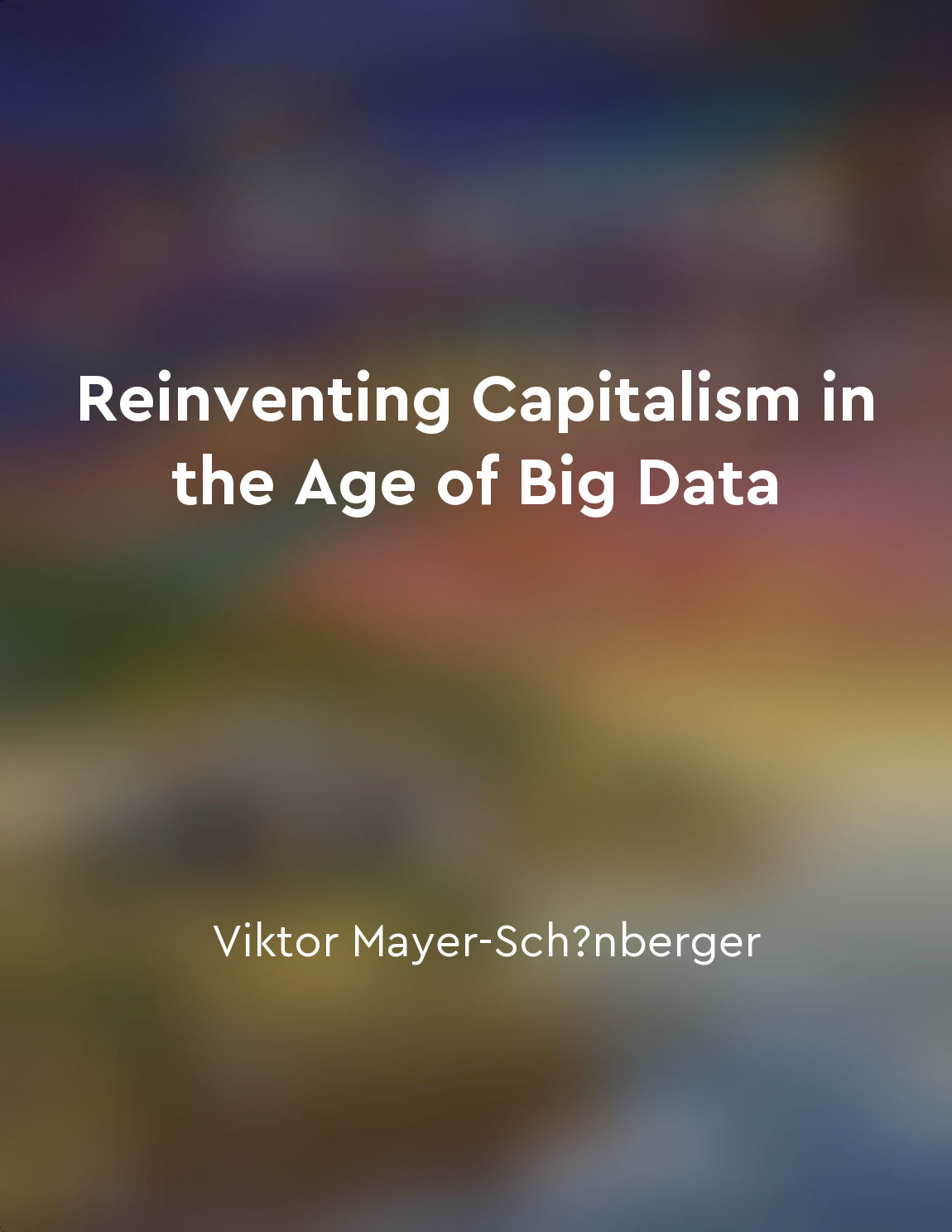Traditional economic assumptions may no longer hold from "summary" of Reinventing Capitalism in the Age of Big Data by Viktor Mayer-Schönberger,Thomas Ramge
The fundamental tenets that have underpinned our economic thinking for centuries - assumptions about scarcity, supply and demand, and the rationality of human behavior - are being challenged in the age of big data. The deluge of data that we now have access to allows us to see patterns and connections that were previously invisible to us. This newfound capability to analyze vast amounts of information has far-reaching implications for how we understand and approach economic issues. Traditional economic models are built on the assumption of scarcity - that resources are limited and must be allocated efficiently. However, in a world where data is abundant and constantly flowing, the concept of scarcity is being redefined. With the proliferation of data, new opportunities for innovation and value creation emerge, challenging the traditional notion of scarcity. Furthermore, the traditional model of supply and demand is being disrupted by the abundance of data. In a data-rich environment, businesses can better understand consumer preferences and behaviors, leading to more tailored products and services. This shift has profound implications for how markets operate and how businesses compete. Moreover, the assumption of rational human behavior, a cornerstone of traditional economic thinking, is being called into question in the age of big data. The data we now have access to reveals the complexities and nuances of human decision-making, challenging the simplistic rational actor model. As we uncover new insights about human behavior through data analysis, we must reconsider how we design policies and incentives to account for these complexities.- The age of big data is upending traditional economic assumptions and forcing us to rethink how we approach economic issues. The abundance of data offers new insights and opportunities, but also challenges us to adapt our thinking and models to a rapidly changing landscape. As we navigate this new era, we must be willing to question long-held beliefs and embrace the transformative power of data.


